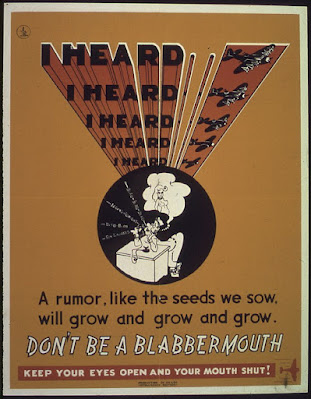How Cancel Culture Could Be Effective
Reliable Sources and Bias
One of the most critical parts previously discussed that pokes holes in the legitimacy and effectiveness of cancel culture is access to non-bias, reliable information. The two types of bias that can impact cancel culture is straight up bias information and the receiver of the information only seeking out the evidence they want to hear, or in other words, confirmation bias. In today's day and age, we live in a society where we often seek out information that supports our preconceived notion of whatever might be going on. Going back once again to Kanye (this is completely for the sake of example): only seeking out information or content that makes Kanye look like a bad person to confirm someone's preconceived idea that he is a bad person. There is never going to be a situation that is going to be totally bias free. But the more that people can try to be aware of their bias, the more likely it is to save them from partaking in cancel culture based on biased information or the other big problem, misinformation. We have all been there, our best friend tells us something that ended up being totally untrue in the long run but it's our best friend!
How could they possibly be wrong if they are our closest friend? This is called the spreading of rumors, which based on no scientific information, is likely not accurate 99% of the time. Have you ever played a game of telephone? Notice how the word isn't the same at the end most of the time? This is because information is always going to change a little every time it travels meaning the more it travels, the more twisted and unreliable it gets. You are always going to be the decider of what information you can trust and what information you don't. It is natural to believe the information of those closer to us versus believing more extraneous sources. However, doing your own research on something someone has said is a much better way to use cancel culture versus just jumping on the bandwagon. One of the biggest things college teaches us is how to find and the difference between reliable, scholarly sources versus less reliable, mass media and popular press articles. Now of course the information on some of the mass media and popular press is of course factual. It's just that they go through less peer review and are not academic papers. Think about how much time you might spend ensuring you find a reliable source? Not always a super fast process. So overall, something to keep in mind before you just make up your mind is to first ask questions, find out more, and than decide what you want to do with the information you now have.Context
This was also something lightly touched on before, but what is it and why is this important? According to Oxford Languages, context can be defined as "the circumstances that form the setting for an event, statement, or idea, and in terms of which it can be fully understood and assessed." In much simpler terms, it is essentially what is going on around the actual event. Context is always a part of the story, whether it's applicable is always dependent on the situation. But why is it important? Context matters because it often gives more information to a situation that could be critical in determining the facts of the situation. If you hear "this person punched this person in the face" you might think "that's kind of dumb, why would a person do that?" Understanding the context of the situation might include knowing that the person who got hit said something mean to the other person. Another example is looking back at the prime minister of Canada and his controversy with black face. Again it is completely unacceptable for the prime minister to have done that. But looking at the context and realizing that this is something that happened over two decades ago, when there likely would have been less social outrage from a situation like that, it might explain a little why the prime minister would have made that choice. Here is the most important part in both of these examples though: context does not justify, it helps explain. So take the theoretical example of the person punching the other person. One said something mean and so the other person hit him because of what that person said. It doesn't always justify that kind of behavior, but it helps explain why that person did that. As for Trudeau, it helps explain why at that time in the world, he chose to do that. Context is often something that is forgotten and should always be something that people strive out when making the decision of whether to include themselves in a situation of cancel culture. Knowing the context of the situation saves you from leaving out details of the story that may help explain a certain decision or action.
The "How-To Guide" to Cancel Culture
Of course the title of that heading is rhetorical because there is not one rule or correct way to go about cancel culture. Remembering some important aspects like the sources of information, the bias associated with those, and thinking about context are only some of the strategies you can keep in mind. Everyone on this planet has opinions and is entitled to them. You might disagree with them, think they are blatantly wrong, and in Kanye's case, might be totally unacceptable. Remember that the use of "canceling" is to ensure accountability. Attacking someone is not going to change them, that's what having a conversation is for. Canceling is something that when used responsibly can have a beneficial outcome and effect but needs to be used responsibly and used for it's purpose. If you ever find yourself in a position where whatever is happening relates to a person, think about what a face to face interaction with this person would look like. In an article written by Nicole Dudenhoefer, a graduate from the University of Central Florida with a bachelor's in journalism, she states, "we have a tendency sometimes to say things via social media or other platforms that maybe we wouldn’t say if we were face to face with someone."
 Social media really is a risk free platform to say whatever you want to a person or about them. It allows everyone to be mean and aggressive to a person that may not deserve any of that. What I believe to be really powerful is that idea about being face to face with the person. It's a good nod to the past when there wasn't any internet or social media and communication was much more simple. Now of course cancel culture doesn't always relate to a person, but in the situations that it does, this is a very powerful thought to have in the back of your mind. Asking yourself, "if I was making direct eye contact with this person right now, would I say what I'm about to say online?" Canceling is definitely not a one size fits all and will always be something that is controversial on it's own. The last part of the "how-to guide" is to remember you are your own person. Do what you think is best, and if your not sure, don't participate. Don't always just let those closest to you impact your decision making.
Social media really is a risk free platform to say whatever you want to a person or about them. It allows everyone to be mean and aggressive to a person that may not deserve any of that. What I believe to be really powerful is that idea about being face to face with the person. It's a good nod to the past when there wasn't any internet or social media and communication was much more simple. Now of course cancel culture doesn't always relate to a person, but in the situations that it does, this is a very powerful thought to have in the back of your mind. Asking yourself, "if I was making direct eye contact with this person right now, would I say what I'm about to say online?" Canceling is definitely not a one size fits all and will always be something that is controversial on it's own. The last part of the "how-to guide" is to remember you are your own person. Do what you think is best, and if your not sure, don't participate. Don't always just let those closest to you impact your decision making.
Work Cited
Dudenhoefer, Nicole. “Is Cancel Culture Effective? How Public Shaming Has Changed.” Pegasus Magazine, 20 Oct. 2020, https://www.ucf.edu/pegasus/is-cancel-culture-effective/.
Nicole Dudenhoefer, https://www.nicoledudenhoefer.com/.
“Oxford Languages and Google - English.” Oxford Languages, https://languages.oup.com/google-dictionary-en/.


Comments
Post a Comment